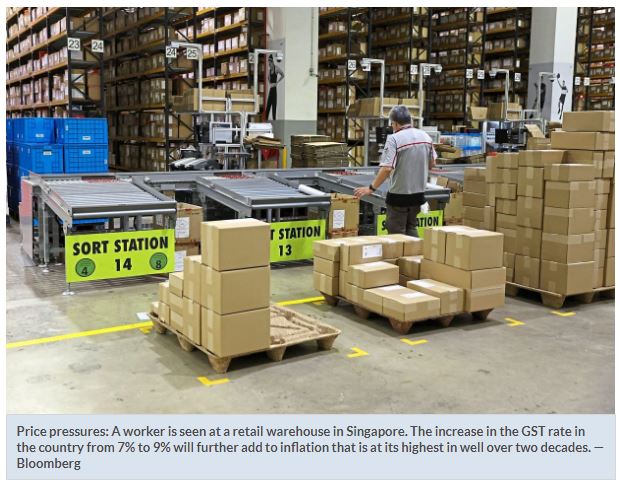How will Singapore’s Budget 2023 address rising costs?
SINGAPORE: Given that Budget 2023 falls on Valentine’s Day, Singaporeans can be forgiven for hoping for some love from the government as they wrestle with the impact of rising prices, increasing healthcare needs, a widening wealth gap and greater uncertainty in an age of rapid digitalisation.
After three consecutive generous budgets, Finance Minister Lawrence Wong will have to craft a post-pandemic budget for an economic environment where the only certainty seems to be elevated costs and global economic uncertainty.
A lot has been said about inflation. Structural changes in the global economy, coupled with the ongoing war in Ukraine, will maintain upward pressure on prices. Add to this the impact of China’s opening, which will likely raise demand – and therefore prices – for energy and commodities.
In Singapore, the increase in the goods and services tax (GST) rate from 7% to 9% – one percentage point in 2023 and another one on Jan 1, 2024 – will further add to inflation that is at its highest in well over two decades.
Budget 2023 is likely to address these issues but via targeted measures.
While all Singaporean households are likely to receive some assistance, the largest chunk of aid is likely to be aimed at the most needy segments of society, such as lower-income Housing Board dwellers.
In 2022, a US$6.6bil (RM28bil) Assurance Package – announced in Budget 2020 – was rolled out to cushion the impact of the GST increase for Singaporeans. By year-end, another US$1.4bil (RM6bil) was added, taking the total package to US$8bil (RM34bil).
Though 2023’s package may not be as generous, experts reckoned it could be similar in quantum to the US$300 (RM1,292) in Community Development Council vouchers recently given to each household under the Assurance Package and a separate US$1.5bil (RM6.46bil) inflation support package.
If economic conditions get worse, more off-budget measures could be in the pipeline later. It is always a good idea to hold in reserve some dry powder.
Wong, who is also Deputy Prime Minister, has already assured that the government is fully prepared to support the populace amid continued uncertainties and challenges in 2023.
These include the war in Ukraine, possible disruptions in food and energy supplies, a weaker global economy and geopolitical tensions, especially between the United States and China. One key issue that Budget 2023, and future budgets, will have to address is the fact that Singapore is fast becoming an ageing society. Almost a fifth of the population will be well over the age of 60 by 2030.
This translates into potentially higher demand for healthcare, as well as transport and social infrastructure, to cater to the needs of older people.
There has to be increasing emphasis on hospitals and clinics. More doctors, nurses and specialists in geriatric care have to be recruited or trained.
In the future, Singapore will have to address the need for more nursing homes and day-care facilities. Incentives may have to be rolled out for young people to consider healthcare as a career option. — The Straits Times/ANN


 Thailand
Thailand




